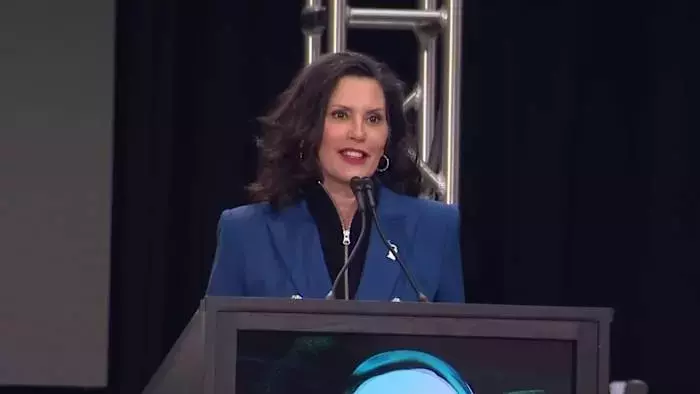
During her visit to the 2025 Detroit Auto Show, Michigan Governor Gretchen Whitmer delivered a compelling speech addressing the challenges and opportunities facing the state’s automotive sector. The governor emphasized the importance of bipartisan collaboration to secure Michigan’s position in the evolving auto industry. She outlined a five-point strategy aimed at fostering economic growth and infrastructure development. Whitmer also acknowledged the need to confront financial hurdles, particularly regarding job funds and road maintenance. Her proposals include initiatives such as "Make it Michigan" and "Hire Michigan," along with investments in housing, transit, and strategic site readiness. While some Republican lawmakers expressed willingness to collaborate, they highlighted concerns over budget allocation and funding priorities.
On Wednesday, Governor Whitmer took center stage at the Detroit Auto Show, where she inspected various vehicles on display after delivering a powerful address. The governor stressed the significance of working together across party lines to tackle the pressing issues facing the auto industry. “We must find common ground because that is what our residents expect,” she stated. Whitmer pointed out that the future of not only the auto industry but also Michigan’s economy hinges on these collaborative efforts. She emphasized the critical juncture the state finds itself in and called for unity in addressing the challenges ahead.
One of the key obstacles identified by Whitmer is the impending expiration of the bipartisan job fund within a year. Additionally, her "Rebuilding Michigan" road bonding plan is gradually phasing out. To overcome these challenges, Whitmer proposed a comprehensive five-point approach. This includes establishing a new "Make it Michigan" job fund to attract companies, implementing a payroll tax cut named "Hire Michigan," streamlining strategic site readiness programs, investing in housing and brownfield development, and enhancing public transit systems. These measures aim to create a conducive environment for business growth and infrastructure improvement.
Whitmer also addressed the ongoing issue of road maintenance, acknowledging that significant work remains to be done. She noted the major funding cliff looming on the horizon and urged better budgeting processes to prioritize essential infrastructure projects. Some Republican lawmakers, like Rep. Donni Steele, have echoed similar sentiments about the need for improved budgeting and prioritization of infrastructure spending. They believe that focusing on critical areas will yield better outcomes for the state’s residents.
A spokesman for House Speaker Matt Hall reiterated the call for solutions that prioritize local and county infrastructure without placing additional financial burdens on taxpayers. Despite differing views on how to achieve these goals, there is a shared recognition of the importance of addressing the state’s infrastructure needs. As Michigan moves forward, the collaboration between government officials and stakeholders will be crucial in shaping the future of the auto industry and the broader economy.
